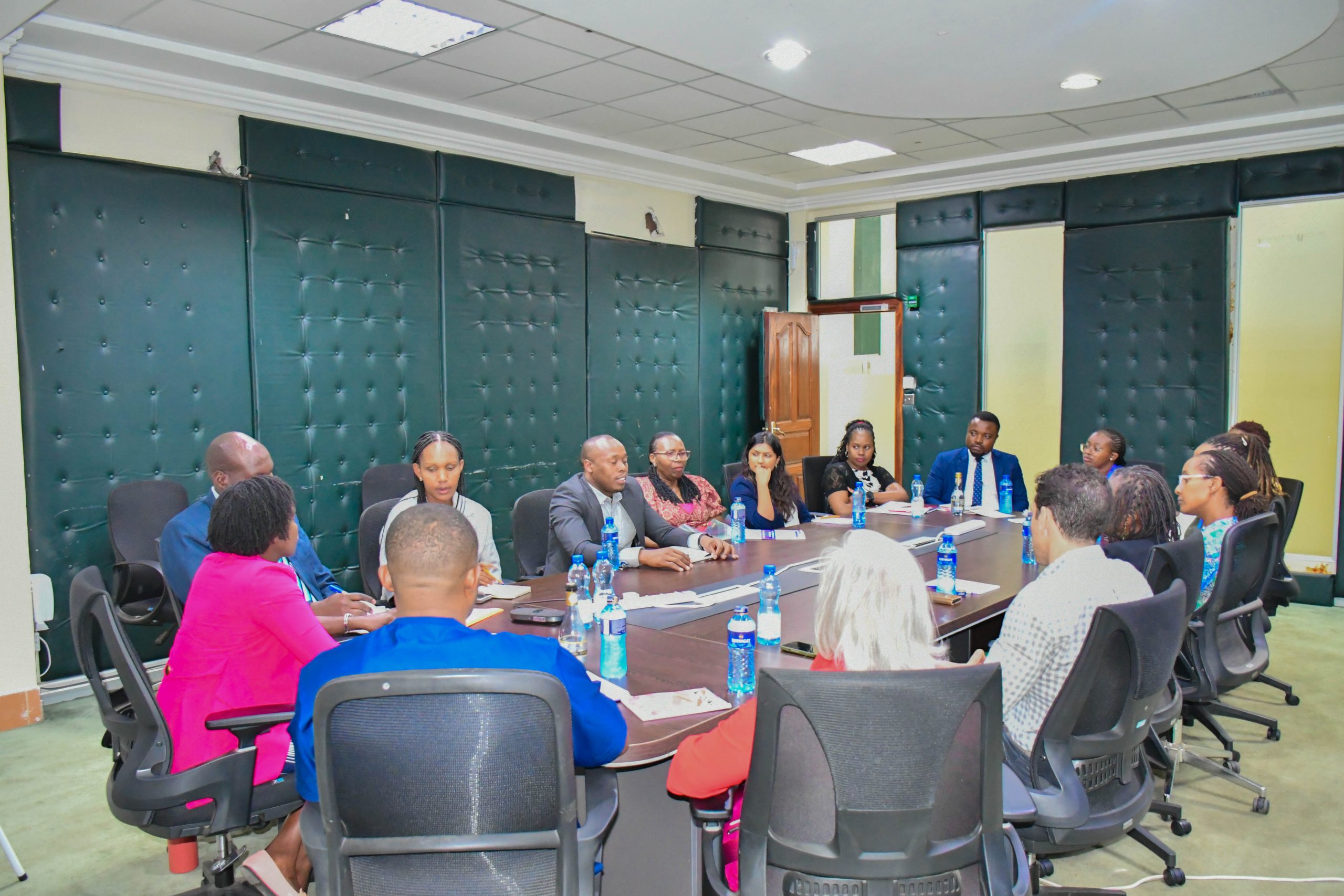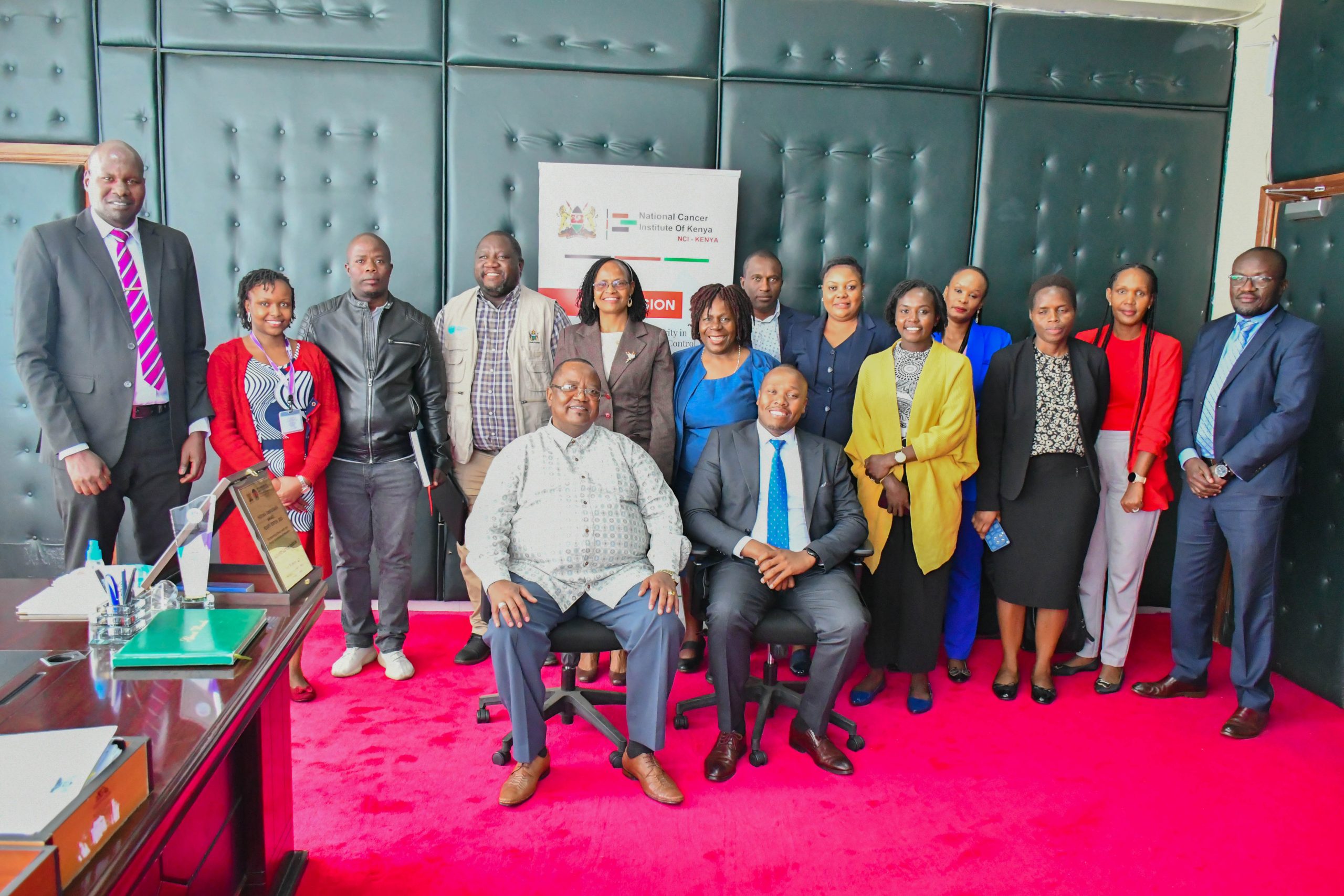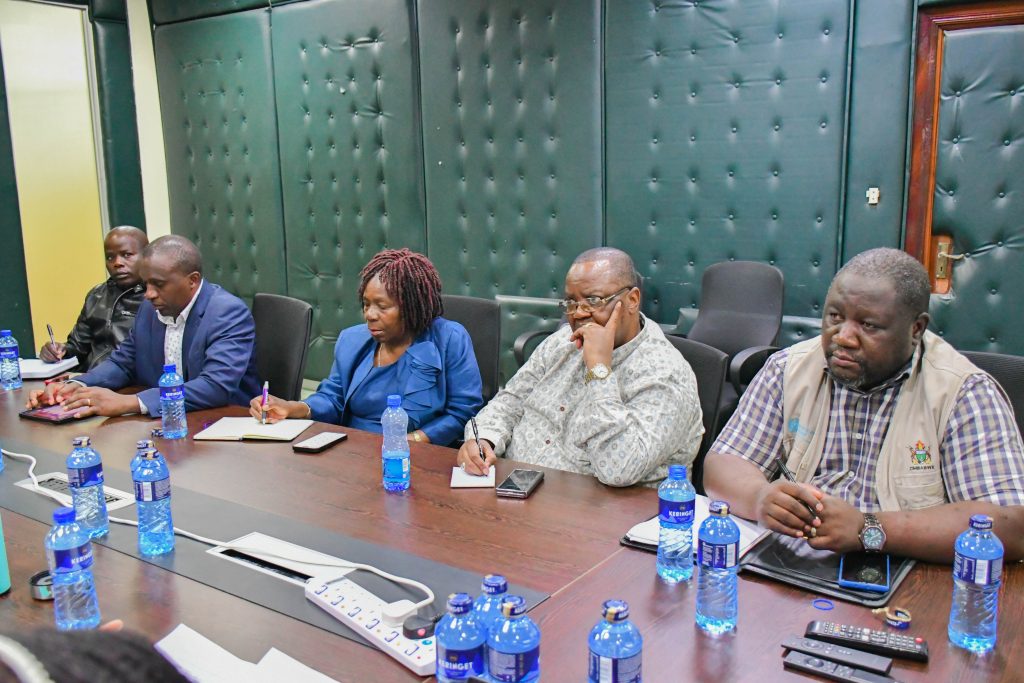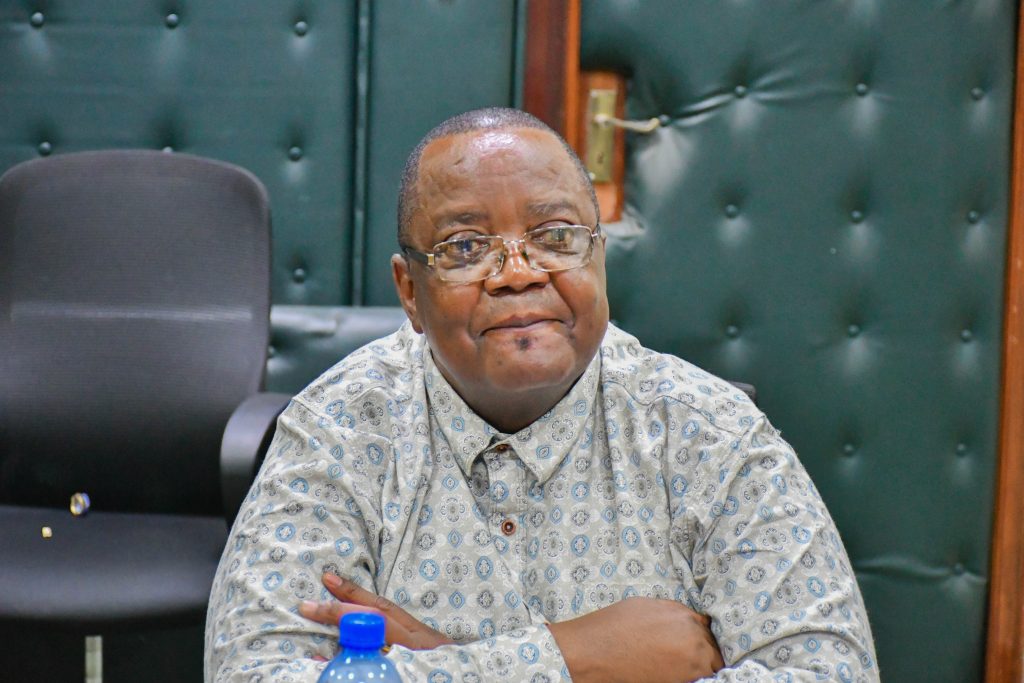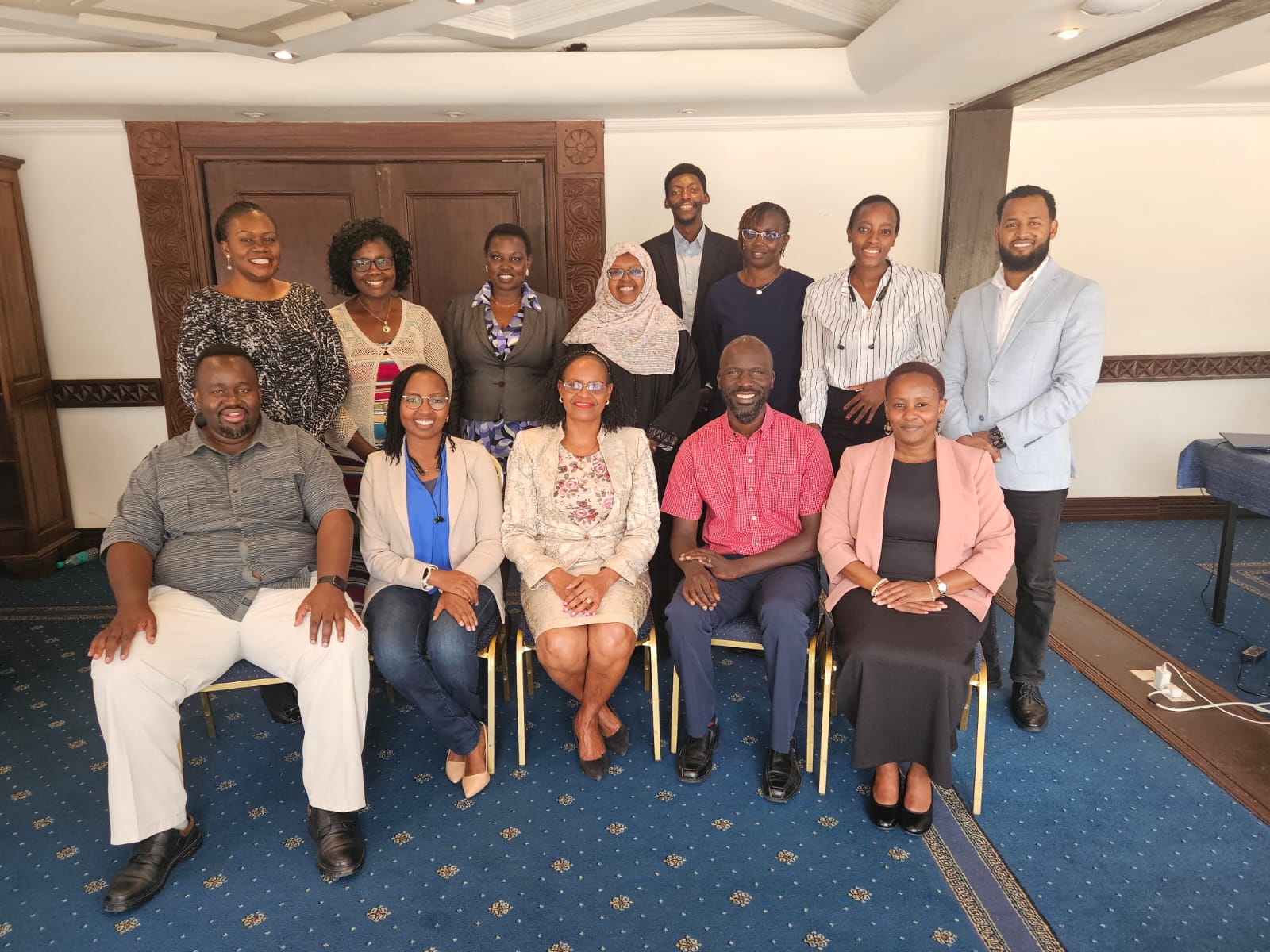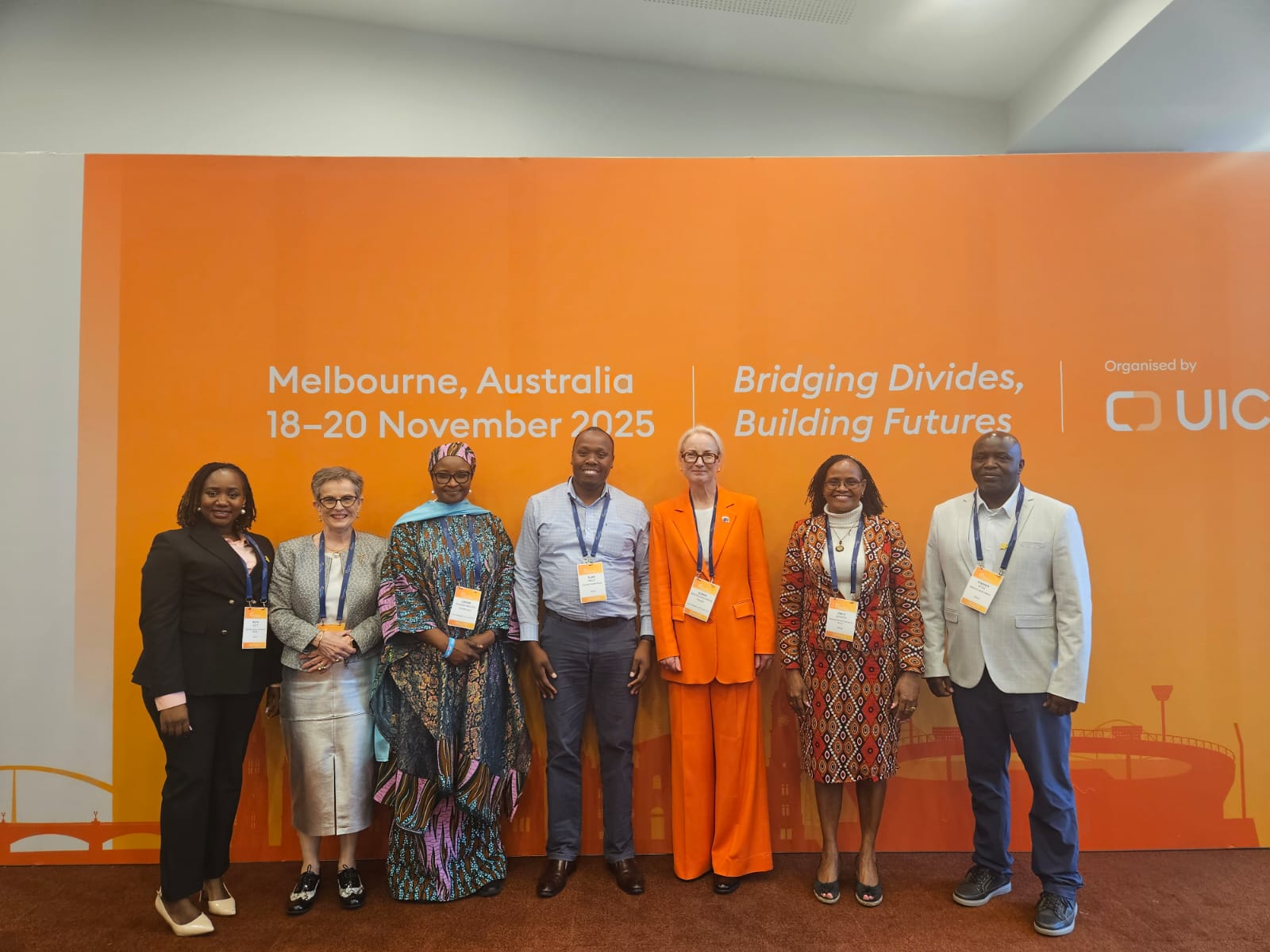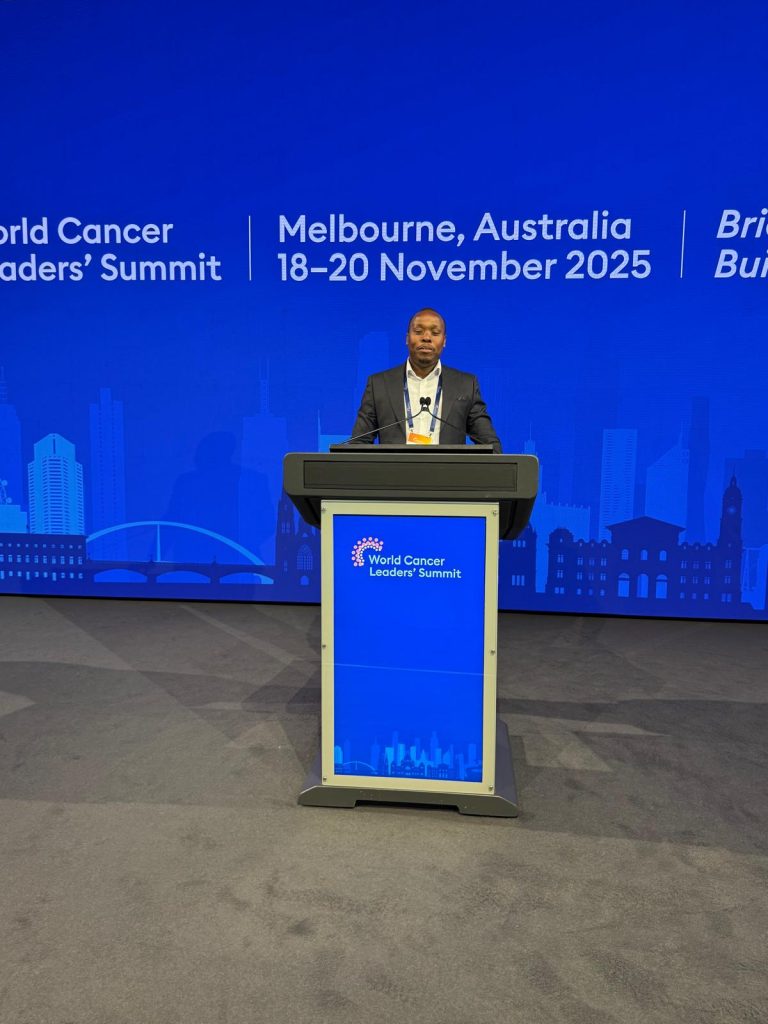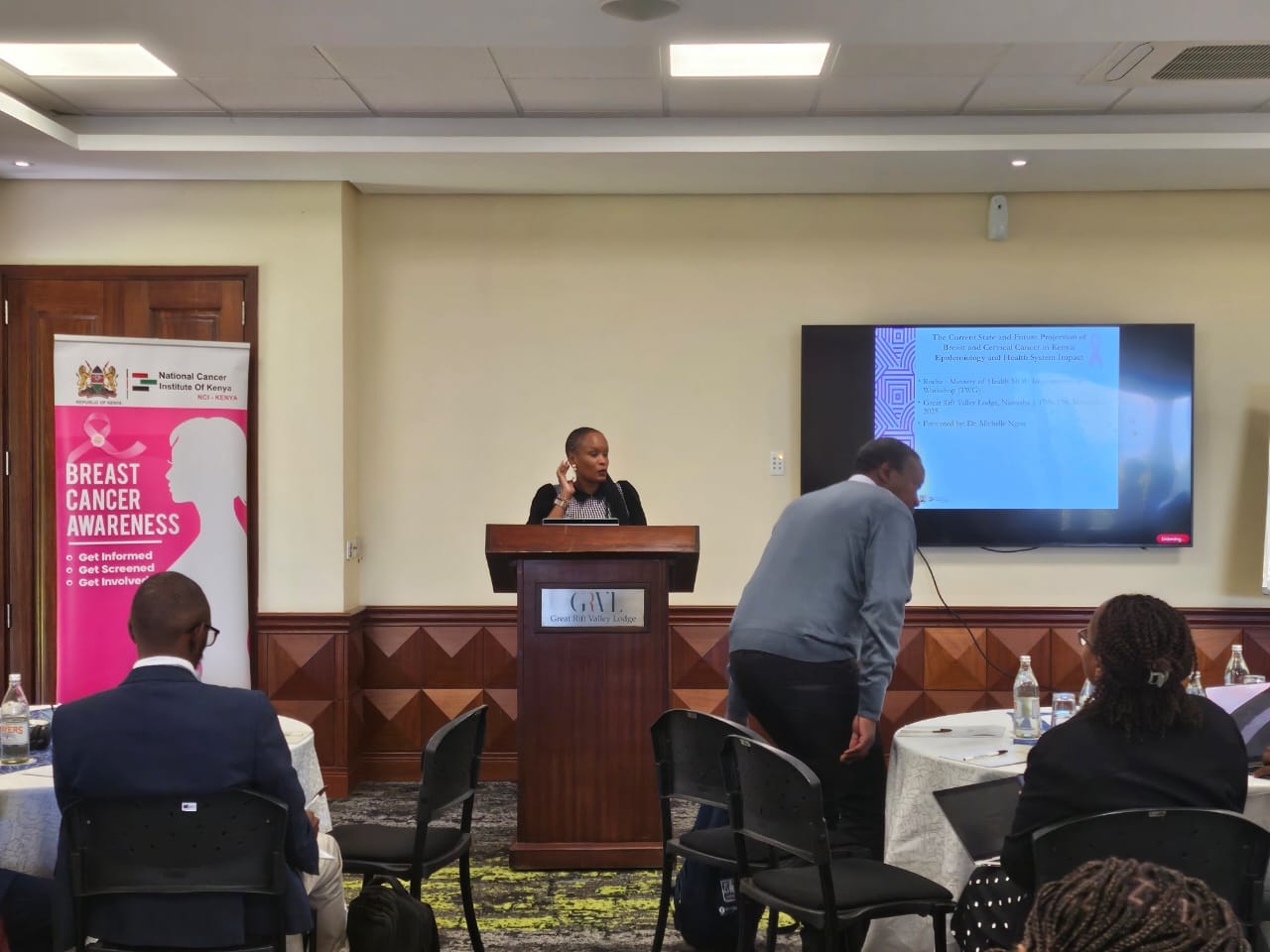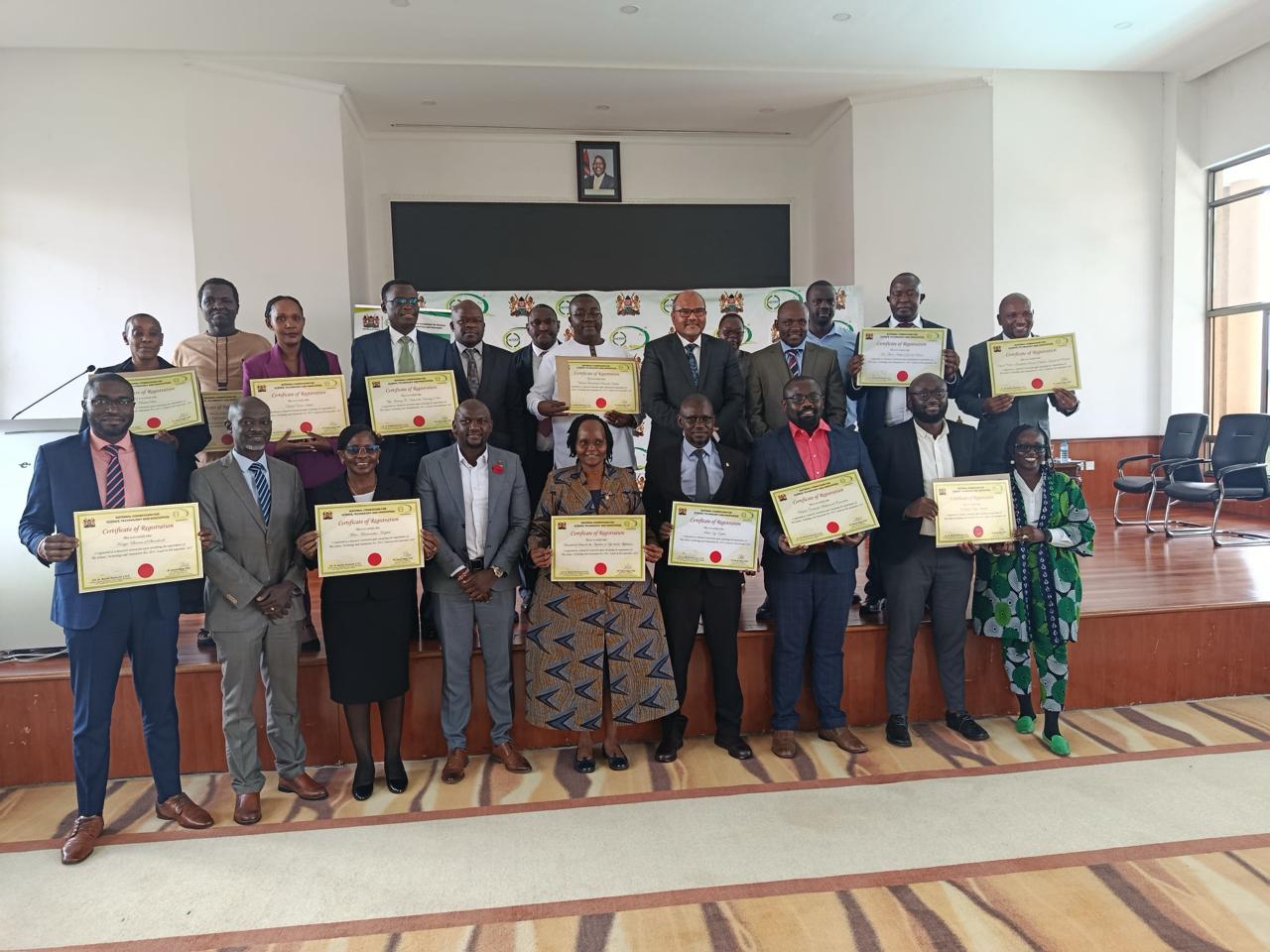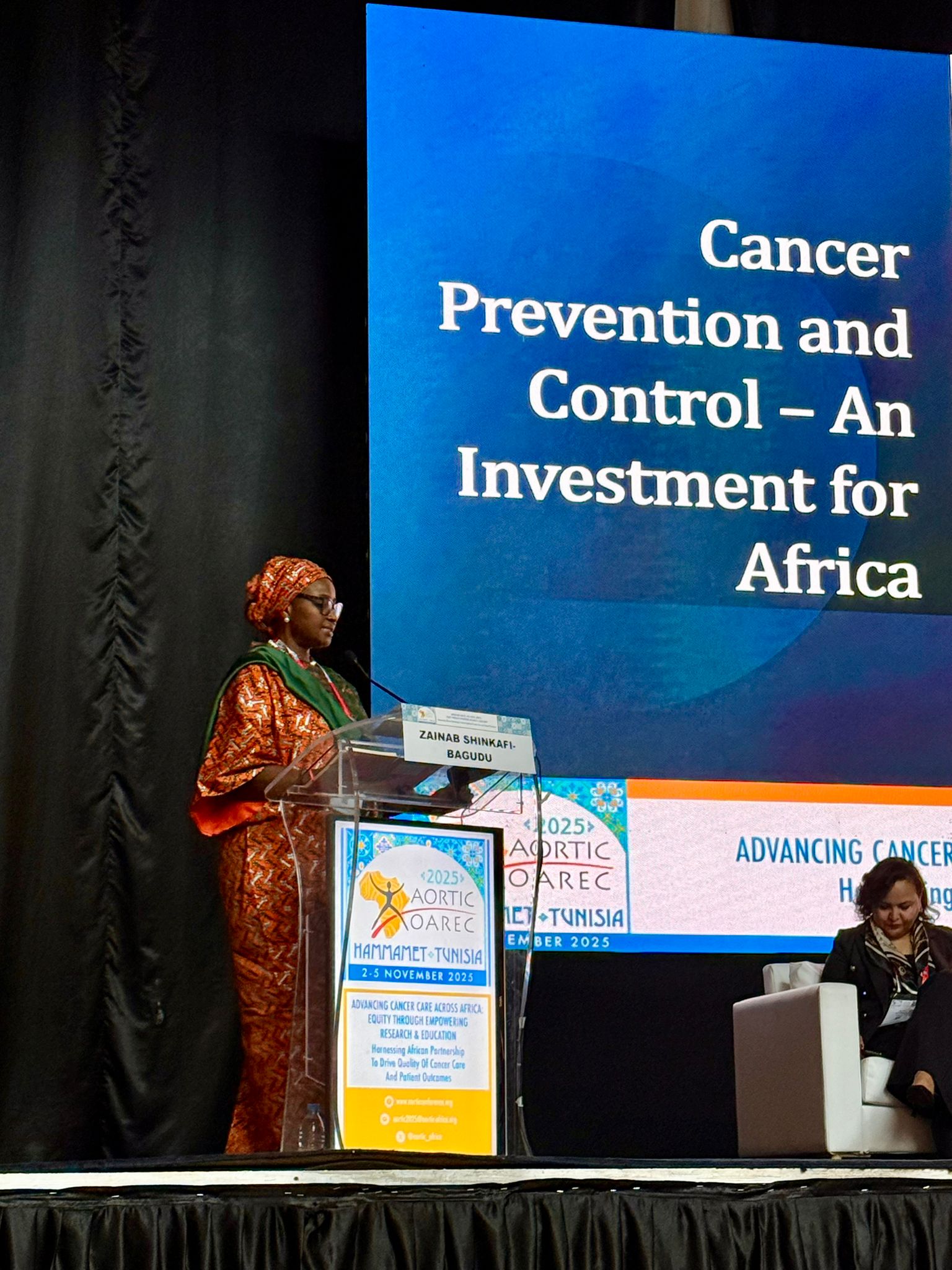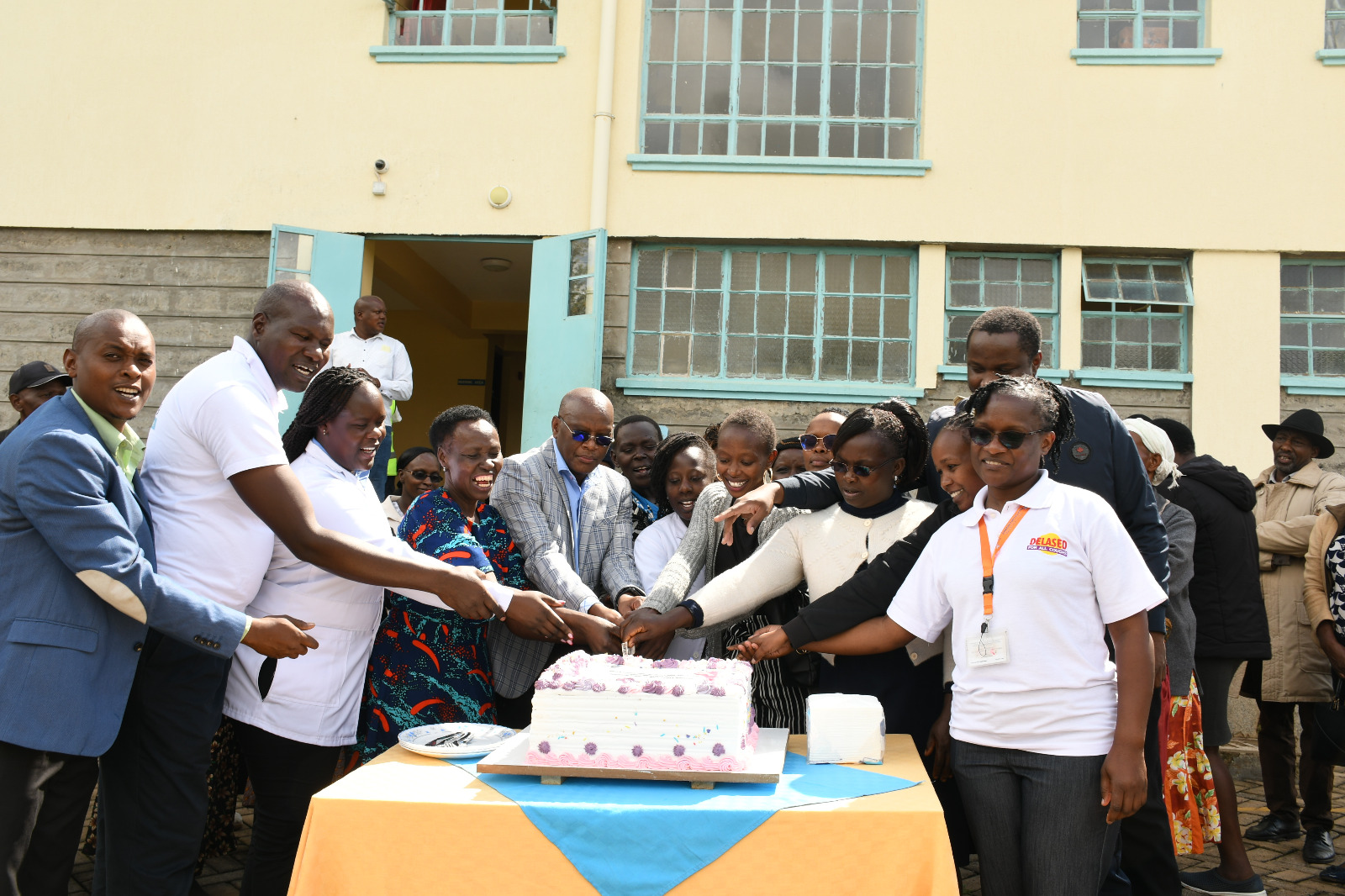3rd December, 2025 – Nairobi, Kenya.
The National Cancer Institute of Kenya hosted representatives from The Hospital for Sick Children (SickKids) in Toronto, and The Faculty of Health Sciences at the University of Nairobi to discuss a research project titled: “An Adapted Early Warning Signs and Symptoms (EWSS) Intervention to Improve Early Recognition and Referral of Childhood Cancers in Kenya and Cameroon.” This is a research project in partnership with the University of Nairobi, Faculty of Health Sciences, and The Hospital for Sick Children (SickKids) in Toronto, Canada.
This study seeks to generate robust evidence on the feasibility, effectiveness, and cost implications of introducing a context-adapted EWSS intervention. The aim is to equip healthcare providers and policy stakeholders with practical, evidence-based tools and guidance necessary to drastically improve the early detection and timely referral of childhood cancers.
The project is currently being rolled out across seven pilot counties in Kenya, ensuring broad geographic representation: Machakos, Garissa, Meru, Embu, Nyeri, Murang’a, and Nairobi.
The meeting, chaired by NCI-K CEO Dr. Elias Melly, aimed to gain a deeper understanding of the implementation context, seeking institutional technical support for anticipated challenges, as well as expert guidance on aligning the intervention with national health priorities.
The National Cancer Institute of Kenya is committed to reducing the cancer burden across all age groups through evidence-based mitigation for improved childhood cancer outcomes in Kenya.
